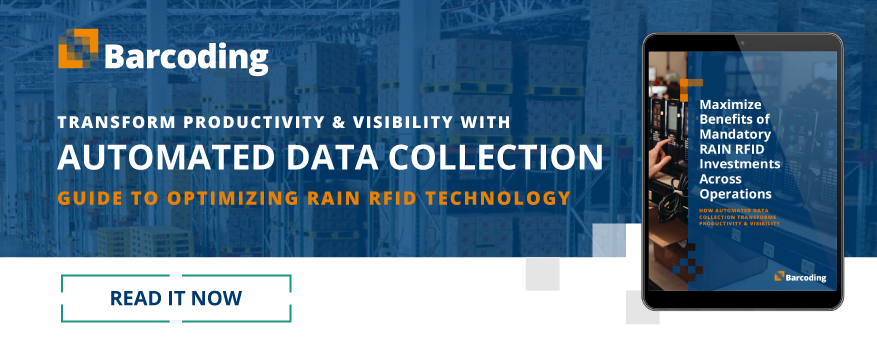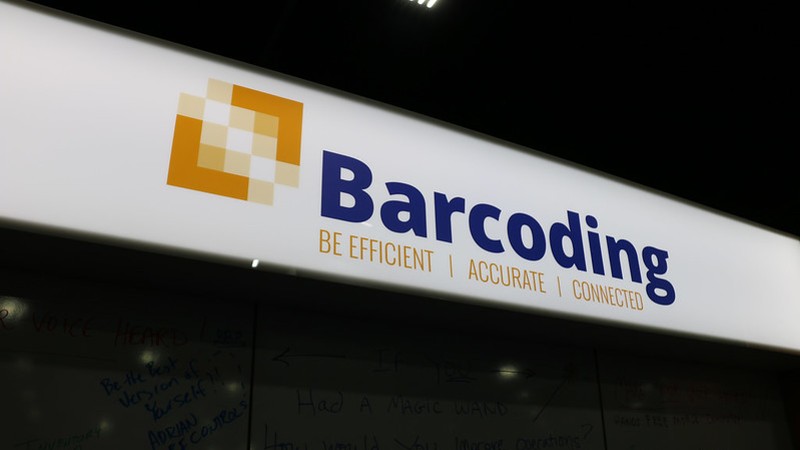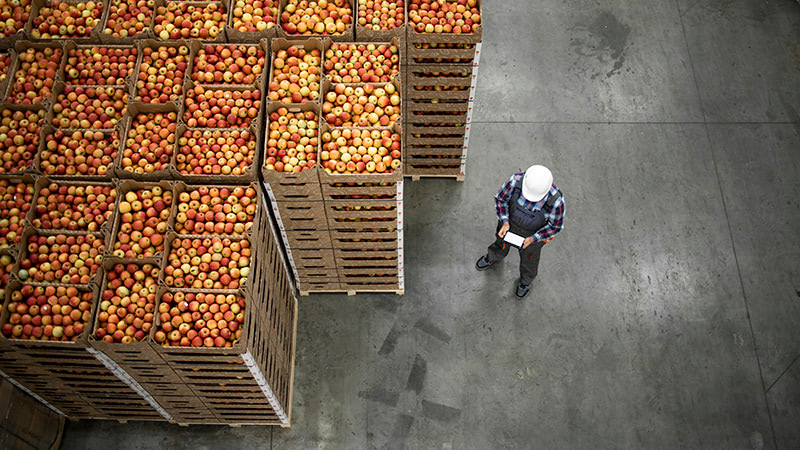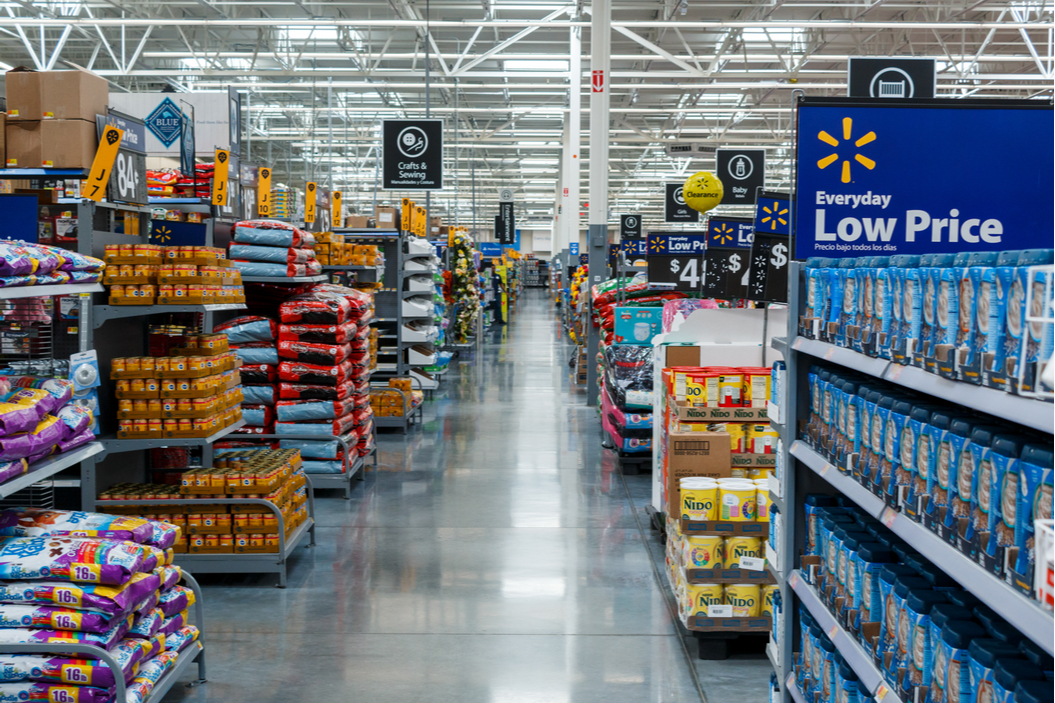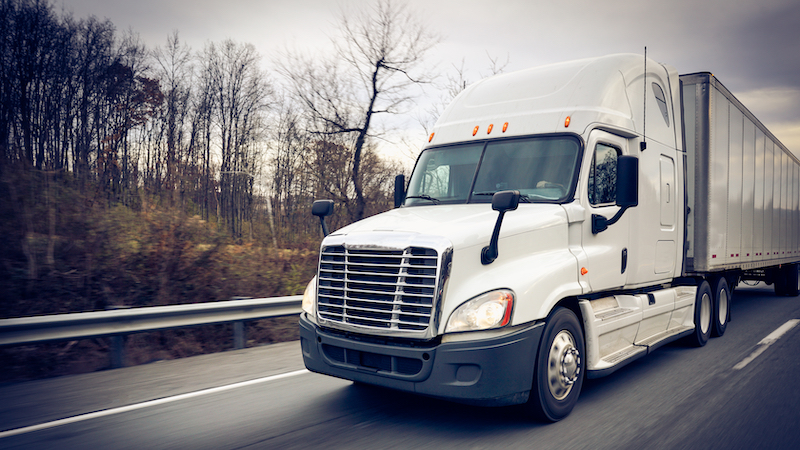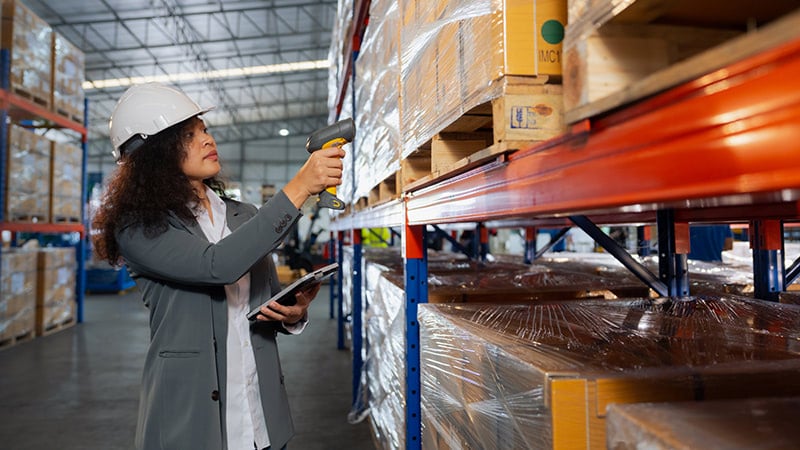The North American food supply chain will take a major step toward digital transformation with the U.S. Food and Drug Administration’s Food Safety Modernization Act Section 204 update (FSMA 204) going into effect in January 2026.
The update aims to improve U.S. food safety by enhancing the tracking and tracing of foods on the FDA’s Food Traceability List (foods such as fresh produce, seafood, cheese, and eggs). FSMA 204 requires companies subject to the rule to develop a food traceability plan, to keep digital records of foods’ movements, and to deliver records of critical tracking events (CTEs) and key data elements (KDEs) electronically within 24 hours of an FDA request. For many suppliers to U.S. customers, FSMA 204 compliance is a must.
Food supply chain stakeholders from farm to fork are investing in automated data capture technologies—like barcode labels and RAIN RFID (radio frequency identification) to ease the path toward compliance and document foods’ end-to-end journey.
But regulatory compliance is just the tip of an iceberg of advantages food supply chain stakeholders have to gain by implementing automated data capture technologies. Here are just a few ways businesses from produce farms to quick-serve restaurants are using automated data collection to improve accuracy and efficiency throughout their operations.
But first, a little more about data capture automation technologies.
RAIN RFID, Barcode Labels, or Something Else?
FSMA 204 doesn’t mandate the use of a specific technology or solution, but automated data capture technologies such as barcodes and fixed scanners, machine vision, and RFID all have their roles in the digital transformation of operations. By streamlining data capture processes and reducing human error, they make data collection faster and more accurate than manual data entry could ever be.
Barcode labels and scanners, along with the software solutions that help put the data to work, can be a game-changing technology improvement that’s relatively straightforward to implement—and the efficiencies gained can be truly transformational to a business. While scanning is often performed by workers using handheld mobile devices or wearables, fixed scanners can have applications, especially in production settings where products move on conveyors, that automate data collection entirely.
RAIN RFID tags, labels, readers and IoT-connected devices use radio waves to make the data collection happen without line-of-sight access to the tag or label.
Both technologies support serialization, or the ability to assign a unique identifier to every individual item. That allows connected solutions to collect data on movements and report status and location to a back-end system.
Serialization is the key to traceability, inventory visibility, and product verification throughout the supply chain. And here are a few areas where food supply chain stakeholders are putting the technologies to work.
Agriculture & Food Production
Farmers have been using data capture and analysis for decades to drive decision-making with up-to-the-minute information. The data they collect via automated processes helps producers maximize yields, reduce waste, and minimize negative environmental impacts.
Along with keeping track of important tools and equipment, farmers can tag livestock to monitor movements and collect data on individual production (as in dairy cows, for example). High-value specimens like breeding stock and valuable seed or nursery stock can be secured with limited access. Inventory levels of feed, crop protection products, vaccinations, and other items can be monitored in real time.
Advanced RFID systems help coordinate agricultural equipment and machinery to plant, apply crop protection products, irrigate, and harvest with precision. This maximizes outputs from limited natural resources, reduces waste, and increases productivity.
Over time, the data collected enables operators to use predictive analytics to improve farm planning and resource allocation.
Processing & Manufacturing
Fixed, handheld, or wearable devices, or automated, IoT-connected devices are put to work in nearly every corner of an industrial processing or manufacturing environment: along production lines, at doorways and gates, along conveyor systems, and even mounted on fork trucks or other equipment.
And as with most technological advances, as operators explore capabilities, they continue to uncover new use cases and benefits, including:
- Improved receiving and put-away accuracy
- Tracking fixed and shared assets (like equipment, tools, and expensive IT assets)
- Improving security and control over hazardous materials
- Managing inventory—preventing stockouts or waste of raw materials, parts, components, ingredients, etc.
- Monitoring equipment performance
- Planning and scheduling projects and allocating resources to prevent bottlenecks and optimize equipment productivity
- Automating repetitive and menial jobs and redeploying human workers to tasks that add value
- Tracking returnable transport items and containers such as bins, pallets, creates, etc.
- Optimizing storage, shipments, and order fulfillment
The ability to automate enables businesses to optimize processes and improve productivity, but the data collected can also deliver insights to leadership that are sure to prove valuable in times of significant change.
Retail, Grocery & QSRs
These are intensely competitive, fast-paced industries, where razor-thin margins leave little room for error. In Canada, 20% of all food produced becomes avoidable loss or waste. That’s food people could be eating; instead, it’s landfilled, incinerated, or managed as organic waste. And it could be revenue contributing to the bottom line.
Up-to-date, accurate inventory data enables a business to optimize stock levels, manage expiration dates and freshness, and reduce waste. Inventory visibility can inform decisions about specials and promotions, making customers happy while better managing inventory. The thing about happier customers and smoother operations? They make for happier employees.
While we’re on the topic of happy employees, we’d be remiss to leave out the benefits of automated delivery verification. RAIN RFID and connected readers can confirm a shipment’s contents and perform cycle counts, even while employees are busy serving customers. No interruptions means fewer errors—both on the customer-facing end and in the back of the house.
Find Out More About Automated Data Capture
Regulatory compliance. Waste reduction. Productivity and efficiency improvements. These are just a few of the wide-ranging benefits food supply chain stakeholders are experiencing after introducing advanced data capture technologies and back-end systems that put the data to work.
How can you embrace these technologies and the competitive advantages they bring? Your best bet is working with a team of integration experts like Barcoding-Canada. Whether you’re driven by the need to comply with a mandate, or by your desire to transform your business processes, Barcoding’s Process–People–Technology approach helps ensure you choose the right solutions for your unique business.
Learn more about the ways retail suppliers as well as food supply chain stakeholders are gaining major business benefits from RAIN RFID investments they’ve had to make in the name of mandate compliance. Download the whitepaper by clicking here or below.
